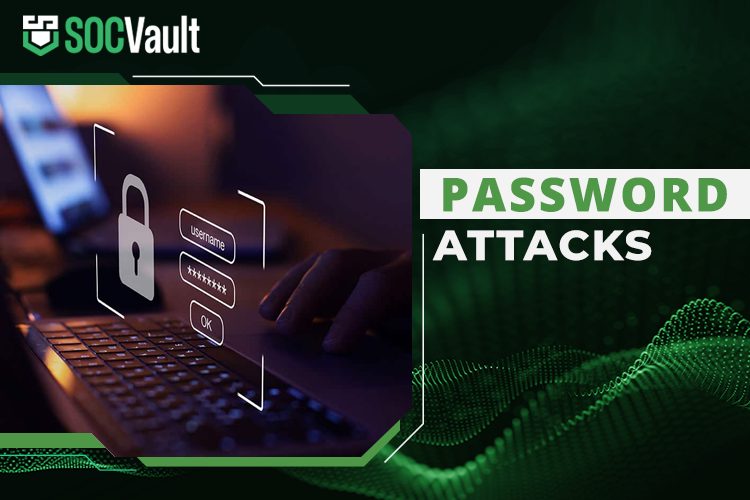
5 Common Types Of Password Attacks
These attacks are derived from the thought where the hacker tries to access your accounts. Stealing passwords and accessing sensitive information is the prime focus of hackers in such cases. Types of password attacks keep increasing as we move into the world of AI-based systems. Nearly 80 percent of breaches in 2020 were due to compromised credentials.
We will discuss the most common cyber-attacks these days as they can open the forbidden doors to the ultimate destination for the attackers. In this way, they can be benefitted in the best of fashion. But, on the other hand, the business owners stay with nothing in their hands.
How Password Attacks Take Place?
Different types of password attacks have different approaches to hacking into computer systems and finding passwords. However, the hackers can hack into your systems, crack passwords via multiple techniques, and discover all possible combinations to hack into an account. Non-encrypted passwords are too vulnerable. Non-encrypted passwords can hand over all the access to hackers once they break-in. Human errors cause such breaches of passwords. Continuous ignorance of security measures can lead to a much worse situation.
Common Types Of Password Attacks
As we move forward, there is a constant change being experienced in the tech world, and the number of cybersecurity threats keeps increasing as well. Therefore, mentioning the latest types of password attacks is essential. Five such types are:
1. Brute Force Attack
In such attacks, the hackers can try multiple combinations of sets of characters to figure out the password. It may seem unlikely but trying out a huge number of combinations is an easy task for hackers, and that too in seconds. Therefore, setting up complex passwords that might not reflect similarity with any personal belongings of the company or company name can help. In addition, building strong passwords using upper case and lower case along with numbers and special characters can help you build strong passwords.
2. Dictionary Attack
It is quite similar to a brute force attack as the hackers are guessing the password combinations of your company. Attackers pick the probable victim’s frequently used words and filter out the words they use out of habit. Important things like date of birth, name of the probable victim’s children, or even their pet names are sometimes framed as passwords. The users must never use basic dictionary words as passwords.
3. Keylogger Attack
Another tech-based method that the hackers are working on is the keylogging attack. This attack makes sure to read out the keystrokes performed by a user and, based on that, carries a solution. The level of accuracy this attack can achieve is too much. Sensitive data and personal information of the company or company’s clients are at risk once hackers break into the accounts after using such methods.
4. Traffic Interception
Another one of the most important types of password attacks is traffic interception. This attack works on the principle of eavesdropping techniques. Here the hacker hacks into a conversation by breaching communication networks or network traffic.
5. Credential Stuffing
This attack does not involve guessing passwords. In this attack, a hacker detects passwords by the use of credentials. Credential stuffing works on the methodology that the same password can be set for more than one account. Compromised credentials are very common these days. People prefer setting the same password repeatedly as they are also good for memorizing.
WHAT WE OFFER?
We offer the best cybersecurity services worldwide including website hosting security, case management, security analytics, intrusion detection, log data analysis, vulnerability detection and much more. Cyber-attacks call for immediate actions, and immediate response actions for any data breach are possible with SOCVault’s prolific SOC as a Service solution. Experience a one-click SOC solution with our multi-featured dashboard. Get your dashboard services available after 24 hours of subscribing, a service that no other cybersecurity company offers. Our clients stay relaxed with 24/7 monitoring services while we protect their critical assets. SOCVault is offering a “FREE 30-DAYS CYBERSECURITY SUBSCRIPTION” if you want to secure your business, then contact us for registration.
